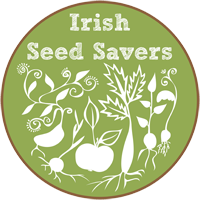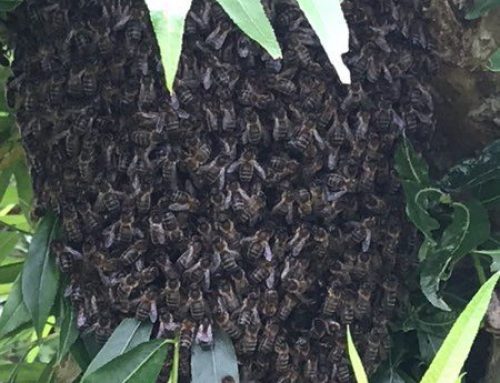An old farmer came in to collect his seeds. While I was there he bought some other packets of seed, hardy things like kale and cabbage and swedes, crops that do well in this climate. Seeing the volume of seeds I asked him if he was a keen gardener, “Not really”, he said, ” I always do a bit, but what with all this war and trouble in Iraq you never know how it’ s going to turn out. Come next spring I want to be sure to be able to feed my family”.
This set me thinking, and later, when I was giving a talk to The Cork Free Choice Consumer Group, I was struck by the similarities between the present situation and 1845, the eve of the great potato famine.
At that time a lot of people were almost completely reliant on one crop, the potato, as their staple food. Even worse, the majority were reliant on one variety of potato, the Lumper. This left them twice as vulnerable as it proved to be particularly susceptible to potato blight. When it struck in 1845, and again in subsequent years, it wiped out the crop and led to great hardship and loss of life.
So how is 1845 similar to the present moment? Surely we have a great wealth and range of food to choose from, and no danger of scarcity? Think again!!
A lot of the food we eat is imported and all of it, to a greater or lesser extent, is dependant on fossil fuel, particularly oil , for its production. This leaves us in a very vulnerable position. It takes oil to grow it, be it in the form of pesticides and fertilisers, plastics and other protective covering, or fuel to cultivate and transport it. The average food basket we buy in the supermarket has travelled over two thousand miles to get here. A lot of the food we eat is grown by people we don’t know, who live far away and are affected by factors we have no control over.
The food chain has become a long, vulnerable one and just as in 1845 we relied on one crop, now again we are reliant on one thing – oil! What will happen if there is a glitch in supply, or when the oil runs out, as it will in approximately 50 years?
I can see it now, massive warehouses full of rotting food because the refrigerators have ceased to run; transport at a standstill and shop shelves empty and looted; farmers slaughtering their animals because they have forgotten how to farm without chemicals; lawlessness and fear on the land as the hungry flee from the cities in search of food.
Far-fetched, perhaps, but where does your food come from? How much of it is locally grown? Who are the producers in your locality and how can you support them? How much of your own food needs can you supply for yourself? These are questions of food security, your own and your families. The more your food is organic, and locally grown, the stronger your local economy will become and the better you will be able to ride out the storm that is the fall of oil. You will also notice the difference in quality and in the health of your loved ones.












